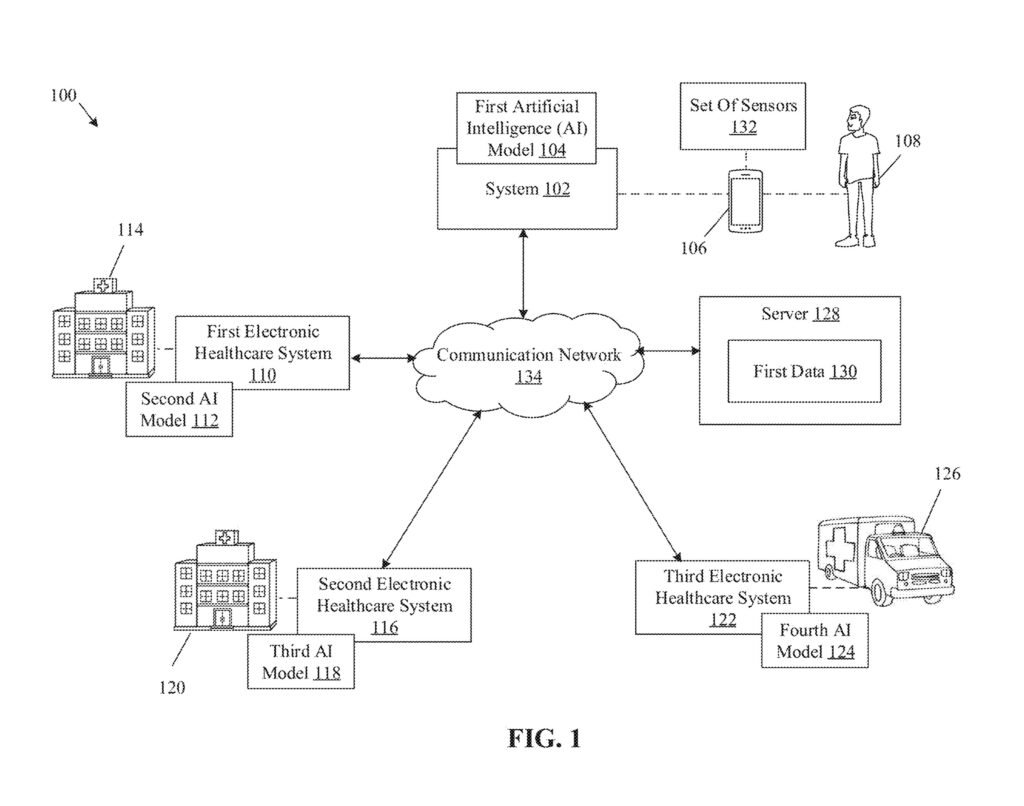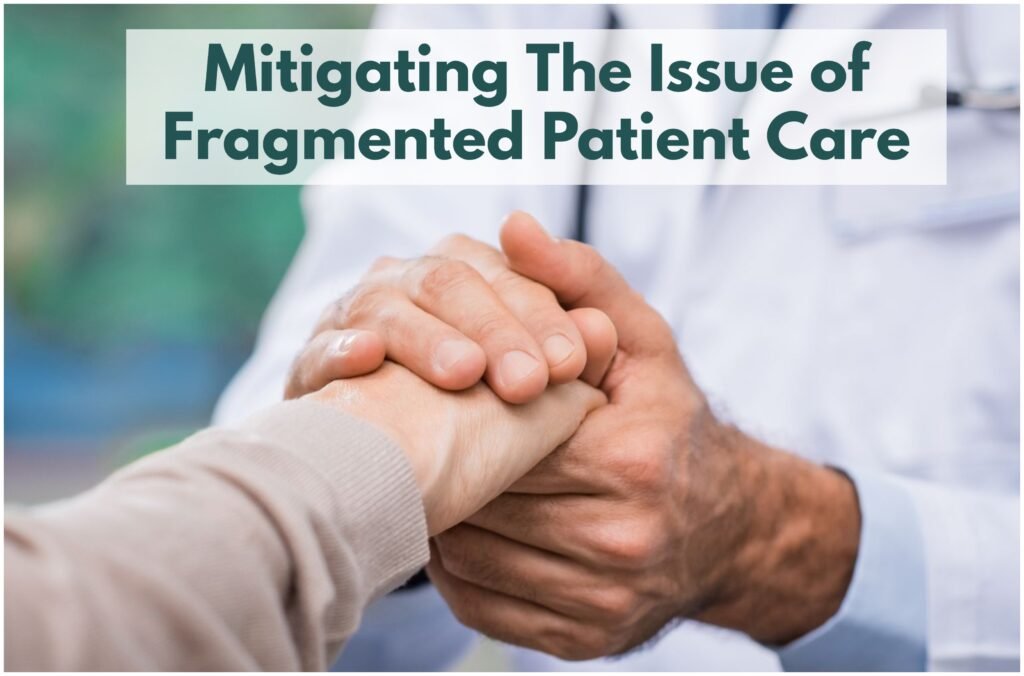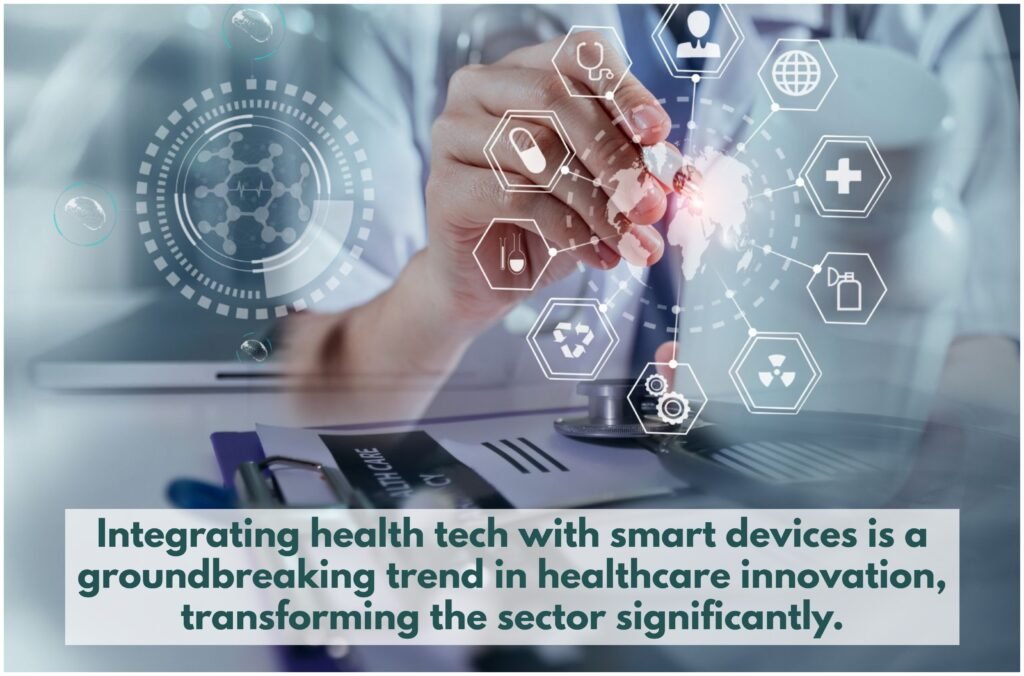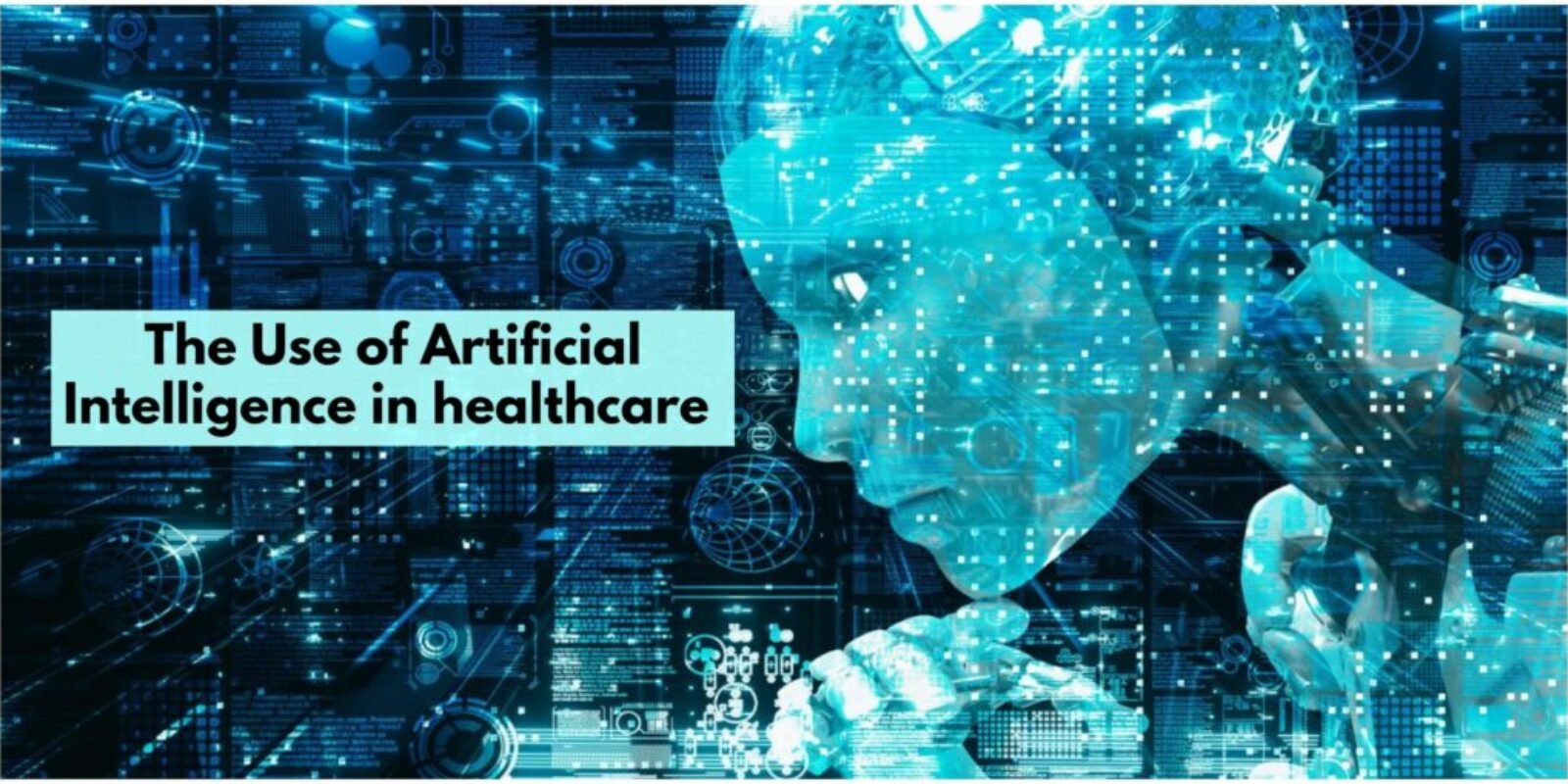Healthcare’s importance is crystal clear, especially as our global population ages and the senior demographic expands. This growing group often grapples with unique challenges in accessing medical care, such as limited mobility, a lack of transportation options, and the ever-increasing demands placed on caregivers.
Yet, we’re seeing a remarkable shift, thanks to technological innovation. Sony is leading this change, leveraging A-enabled access to offer seniors unprecedented access to medical information. Artificial intelligence is redefining the way doctors and patients interact, and Sony’s cutting-edge technology is a prime example of this evolution.
AI doesn’t just offer timely and accurate health information; it empowers seniors to make well-informed decisions about their healthcare. Sony’s technology enhances communication and minimizes errors, allowing healthcare providers to deliver superior care.
Through the fusion of AI and medical knowledge, Sony is unlocking new avenues for seniors to receive personalized, efficient, and effective healthcare solutions. In this blog post, we’ll dive deeper into Sony’s AI-enabled access approach to medical information, shedding light on its advantages for both seniors and healthcare providers.
Sony’s AI-Enabled Access to Healthcare Services
AI-enabled access to health info is all about connecting the dots between doctors, clinics, and patients in real time. Think of it as a direct line to your doctor, but supercharged with the latest tech. The technology has been around since the ’60s and ’70s since NASA has been using it for their space missions.
They wanted doctors on Earth to keep an eye on astronauts’ health from miles away, using nothing but satellites. Fast forward to today, and AI-enabled access is becoming a game-changer in how we think about healthcare from afar.
Prefer to listen rather than read?
Sony is bringing remote healthcare to the next level with their tech. They’re not just joining the game. They’re looking to change it with their latest AI-enabled access tech. With AI growing faster than ever, Sony’s timing couldn’t be better. Just a decade ago, the leap in AI-enabled access was huge, thanks to machine learning.

That said, the expected impact of AI-enabled access to data has not been forthcoming – or at least it has not come as rapidly as industry analysts had first thought. Sony’s new technology may just well change all that.
Investors have been leaning favorably towards AI-enabled access healthcare with its market value going up to $100 billion in 2021. Experts are predicting this market is going up more than ten times its value of $187 when 2030 rolls in. This growth means more than just numbers for machine learning tech; it’s about real changes in how seniors interact with the entire healthcare system—hospitals, docs, you name it—all thanks to AI-enabled access.
The secret sauce? Data science and statistical prediction. These aren’t just buzzwords; they’re the backbone of AI-enabled access, making it possible to predict and manage everything from diagnosis to treatment plans. The potential here is massive, but we’ve been waiting for that big breakthrough. Sony’s new tech might just be the push AI-enabled access needs, turning slow progress into a sprint towards changing healthcare for the better.
The Amazing Possibilities of AI-Enabled Access to Health Information
Healthcare costs eat up a big part of seniors’ retirement savings. In fact, the Brookings Institute highlighted that in 2019, a whopping 17 percent of the US GDP was spent on healthcare.
Imagine if AI-enabled access to information could shake up healthcare the way it did retail and banking. Healthcare could become much more affordable and efficient for countless seniors. That’s precisely what Sony is aiming to do with its latest innovation in AI-enabled access to healthcare services and medical info.
You have to understand that Sony’s AI-enabled access goes beyond just recording your vitals like your blood pressure or sugar level. It also considers your age, family medical history, gender, and other background factors. All the medical data allow Sony’s AI powered tech to deliver personalized healthcare suited for specific people.


As demand for personalized and integrated healthcare grows, Sony’s technology is ready to meet the moment. It uses wearable gadgets like smartwatches and phones to send crucial health data straight to healthcare providers, without delay. This melding of health tech with our everyday devices means doctors and nurses get a fuller picture of our health, from vital signs to medication details. It’s about giving healthcare pros the tools they need to make the best decisions for our care, powered by AI-enabled access.
With this clearer view, doctors and healthcare teams can spot problems early and take action before things get worse. This means patients get better care and healthier outcomes. It’s like having a crystal ball, thanks to AI-enabled access. This isn’t just good for patients; it makes the whole healthcare experience smoother and more effective.
Real-Time Tracking of Sensor Data
For years now, many leaders of technology-driven healthcare institutions have been anticipating the potential benefits that AI will have on the efficiency of their operations.
In reality many, if not all, healthcare institutions in the developed world have already been reaping the benefits of AI tools and AI-enabled access to health information.
These new AI-enabled technologies have already begun improving many activities in healthcare institutions. These include enhancing the accuracy of oncological diagnosis to reducing time and money spent on patient visits.
Sony’s new technology enables the tracking of sensor data in real time and the prompt notification of patients if any abnormalities occur. In the event of a deviation from the norm, the user is alerted to seek medical attention while the hospital or clinic is automatically informed of their current health status. Sony’s technology provides hospitals with access to only the medical records necessary for the user’s treatment at that time.
Real-time tracking of sensor data is crucial in the field of medicine for several reasons:
Early Detection of Health Issues
- Real-time tracking of sensor data allows doctors to identify potential health problems before they become serious. For example, if a patient’s blood pressure spikes, it could be a sign of an underlying issue that requires medical attention. With real-time monitoring, doctors can quickly intervene and prevent the problem from escalating.
Timely Medical Intervention
- Real-time tracking of sensor data can alert doctors and healthcare providers to potential problems before they become life-threatening. This allows for timely medical intervention, which can be critical in emergency situations.
Improved Treatment Outcomes
- Real-time monitoring of sensor data enables doctors to make more informed decisions about patient care. By analyzing the data collected over time, doctors can identify patterns and trends that may indicate a particular treatment or medication is working or not working. This allows for more personalized and effective treatment plans.
Enhanced Patient Safety
- Real-time tracking of sensor data can help prevent medical errors and improve patient safety. For example, if a patient is given a medication that interacts negatively with their current health condition, the sensor data can alert healthcare providers to the potential danger before it becomes a problem.
Overall, real-time tracking of sensor data can significantly improve the quality of care for patients and help healthcare providers make more informed decisions about patient care.
Ensuring Patient Privacy
Sony’s AI-enabled access to healthcare services ensures that patient privacy is maintained while still enabling hospitals to provide appropriate care. After treatment, the system updates its AI model to monitor the patient’s progress, further enhancing the quality of care provided.
This ensures that patients receive timely medical attention or intervention, reducing the likelihood of fragmented care. This can be particularly beneficial for seniors who may require regular monitoring of their health.
Ensuring patient privacy is crucial when it comes to the automated collection of information through devices for several reasons:
Protecting Confidentiality
- Patients have a right to privacy when it comes to their medical information.
- This means that their personal information, such as their name, medical history, and test results, must be kept confidential to protect their privacy.
Maintaining Trust
- Patients must trust that their personal information is kept secure and confidential.
- If patients feel that their information is not being handled appropriately, they may be less likely to share information with healthcare providers, which could ultimately result in poor health outcomes.
Avoiding Discrimination
- Personal information collected from patients can be used to discriminate against them in various ways.
- For example, insurance companies might use the information to deny coverage or charge higher premiums, while employers might use it to make decisions about employment.
Compliance with Legal Regulations
- There are legal regulations in place, such as HIPAA in the United States, that require healthcare providers to protect patient privacy. Failing to comply with these regulations can result in legal and financial consequences for healthcare providers.
Overall, ensuring patient privacy is essential for building trust, protecting confidentiality, avoiding discrimination, and complying with legal regulations.
Mitigating The Issue of Fragmented Patient Care
Sony’s “AI-enabled access” technology helps improve the overall quality of healthcare. This means that its technology can help address the problem of healthcare being delivered in a disjointed manner across different healthcare providers and facilities.
Fragmented patient care is a pervasive issue that plagues the healthcare industry, causing significant challenges and complications for older patients who require the expertise of multiple specialists.
These patients usually rely on various healthcare facilities, or undergo transitions between different levels of care.
This fragmentation occurs when the communication and coordination between healthcare providers and institutions become disjointed, leading to a fragmented patient experience that hampers the overall quality of care.
One of the worst consequences of fragmented patient care is the lack of continuity in medical treatment.
When patients have to navigate through a convoluted network of specialists, each focusing on their specific domain, it becomes increasingly difficult to ensure that their healthcare needs are met comprehensively.
As a result, patients may find themselves repeating their medical histories, undergoing duplicate tests, and experiencing unnecessary delays and inconvenience.
The absence of a centralized system for sharing medical records exacerbates this issue, making it harder for providers to access crucial patient information promptly.
Fragmented patient care can likewise impede the timely diagnosis and appropriate management of complex medical conditions.
When different specialists are involved in a patient’s care, it becomes crucial for them to collaborate effectively to ensure accurate diagnoses and optimal treatment plans. AI-enabled access to a patient’s medical ensures that each physician or clinic has all the information needed to provide the patient with the correct medical assessment and care.
Without AI-enabled access to accurate and correct information, doctors may miss relevant information, leading to a misinterpretation of symptoms and delayed or incorrect diagnoses.
Such delays can have severe consequences, potentially compromising the patient’s health and well-being.
In addition to the challenges faced by patients, fragmented care also poses financial burdens on both individuals and healthcare systems.
The lack of coordination often leads to redundant tests, unnecessary procedures, and prolonged hospital stays, contributing to inflated healthcare costs.
Fragmented care can also result in increased healthcare utilization, as patients may seek care from multiple providers to fill the gaps left by disjointed care delivery. This increased utilization can strain healthcare resources and impact the efficiency of healthcare systems.
This can result in medical information being lost or not being properly shared between providers, leading to delayed or inappropriate treatment. By mitigating this issue, healthcare providers can improve patient outcomes and reduce healthcare costs.

Providing timely and appropriate medical attention or intervention is, of course, critical in healthcare.
Patients may require urgent or emergency care and delays or mistakes in treatment can have serious consequences. Automated collection of information through patient devices can help healthcare providers to identify health problems earlier and intervene quickly before they become more serious, improving patient outcomes and quality of life.
Patients benefit from more comprehensive care and better outcomes, while hospitals and clinics benefit from improved efficiency and reduced costs. Ultimately, Sony’s “AI-enabled access” technology represents an important step forward in the ongoing effort to improve healthcare delivery and outcomes.
The Potential of AI in Healthcare to Improve Patient Care
While AI in healthcare is not a new concept, Sony’s patent has the potential to transform the industry. AI has been a buzzword in the tech industry for years, and its potential impact on healthcare is just beginning to be realized. By automating common processes like checking vitals, collecting data, and examining symptoms, AI could significantly improve the efficiency and accuracy of diagnoses, resulting in better care for patients.
With the current shortage of medical professionals, AI could also be the solution needed for triage. By rapidly running through every possibility when a doctor may not have the time to do so, AI could help doctors and nurses prioritize patients based on urgency and severity.
Krishna Kurapati, founder and CEO of healthcare communications platform QliqSOFT, believes that AI could be a game-changer in the healthcare industry. He suggests that AI could help speed up the reading of EKGs and other medical tests, allowing for a quicker diagnosis and treatment plan.
Sony is no stranger to the healthcare space, offering an array of health tech products, including medical imaging and documentation products. The patent for “AI-enabled access” to healthcare services and medical information is a strategic move for Sony, as it combines its healthcare dealings with another one of its businesses: smartphones and smartwatches. This convergence of technologies could potentially make healthcare more accessible and convenient for seniors, allowing them to take a more active role in their own care.

Conclusion
The convergence of health tech and smartphones/smartwatches is a significant step forward in revolutionizing the healthcare industry and is a prime example of this innovative trend. By seamlessly integrating technology with medical expertise, Sony is providing seniors with personalized, efficient, and effective healthcare services while also streamlining communication and reducing errors for healthcare providers.
The benefits of such advancements cannot be overstated, and as we continue to navigate the challenges of an aging population, it is reassuring to see companies like Sony leading the way in ensuring the health and well-being of our senior citizens.
As we continue to age, our health becomes increasingly important and it is crucial that we embrace technology and innovations that can help us maintain good health and improve the delivery of healthcare services. Sony’s “AI-enabled access” technology could help provide timely and appropriate medical attention to patients.
Are you ready for the exciting world of Sony’s “AI-enabled access” to technological advancements? What do you think about the brilliant way they’re bridging the gap between health and technology? Share your thoughts and let’s get the conversation going!
FAQ: AI in Healthcare
- What are the primary challenges in integrating AI tools into clinical practice?
- Integrating AI into healthcare presents significant challenges, including ethical, technical, and trust-related concerns. Data privacy and compliance with strict healthcare regulations are critical to protect sensitive patient information and ensure ethical use.
- AI tools must also deliver accurate, patient-specific recommendations and integrate seamlessly with existing healthcare IT systems to avoid operational disruptions. Building physician trust through transparency and evidence-based outputs is essential for successful adoption. Addressing these issues is vital for harnessing AI’s transformative potential in clinical practice.
- How does machine learning enhance medical diagnosis and treatment in healthcare?
- Machine learning transforms healthcare by improving the accuracy of diagnoses and tailoring treatments. It analyzes extensive clinical data and medical images, uncovering patterns and identifying health issues that might go unnoticed by human observation. Personalized treatment plans are another key benefit, as machine learning predicts the most effective therapies for individual patients based on their unique data.
- Advanced applications like precision medicine and vital sign monitoring enable early interventions, while deep learning expands capabilities in areas like natural language processing. This technology is revolutionizing patient care, offering greater precision, efficiency, and cost savings in healthcare.
- What challenges are associated with integrating AI into diagnosis and treatment applications in healthcare?
- Integrating AI into healthcare faces hurdles such as aligning AI solutions with existing clinical workflows and electronic health record (EHR) systems to prevent disruptions. Embedding AI into complex healthcare infrastructures poses significant challenges, limiting its widespread adoption.
- Many AI tools function as standalone solutions, requiring multiple systems to address various aspects of care, which increases complexity for providers. Additionally, limited AI features in EHR systems often necessitate costly integration projects or partnerships with third-party vendors to fully leverage AI’s potential.
- How can AI assist in the early detection of rare diseases?
- Artificial intelligence is transforming rare disease detection by analyzing complex patterns in medical data to identify subtle indicators often missed by clinicians. Tools like facial analysis technology help detect genetic disorders by comparing patient features with databases, while AI’s integration with genetic data reveals connections that traditional methods might overlook.
- Continuous learning enables AI systems to improve diagnostic accuracy over time, further enhancing their value in identifying rare conditions. These advancements not only increase diagnostic precision but also accelerate the path to treatment, improving outcomes for patients.
- What role do tech giants like Apple, Microsoft, and Amazon play in AI healthcare technologies?
- Leading companies like Apple, Microsoft, and Amazon are reshaping healthcare by investing in advanced AI technologies. They leverage AI to enhance data analysis for precise diagnostics and personalized treatments, while AI-powered devices enable real-time patient monitoring to detect health irregularities swiftly.
- These innovations streamline administrative operations, reducing errors and improving efficiency across healthcare systems. Additionally, their funding of AI-driven research accelerates medical advancements, making healthcare more accessible, personalized, and efficient on a global scale.
- What are the benefits of using natural language processing in healthcare?
- Natural language processing (NLP) enhances healthcare by improving diagnostic accuracy through the analysis of medical records, reducing errors, and enabling earlier, more precise diagnoses. It streamlines clinical workflows by automating data extraction, allowing professionals to focus on patient care while cutting operational costs.
- NLP also supports personalized care by tailoring treatments based on patient histories and anticipating health risks for preventative measures. With its ability to manage complex medical data efficiently, NLP is transforming healthcare and promises even greater advancements as the technology evolves.
- How is AI changing administrative tasks in healthcare settings?
- AI streamlines healthcare administration by automating repetitive tasks like data entry, claims processing, and appointment scheduling, reducing errors and enhancing efficiency. These tools enable healthcare providers to focus more on patient care while optimizing resource allocation and revenue management.
- AI’s ability to quickly analyze medical records and test results minimizes human error, improving workflow and supporting faster, more precise diagnoses. By enhancing operational efficiency, AI reshapes healthcare delivery, balancing quality care with cost-effectiveness.
- How did IBM’s Watson contribute to the development of AI in healthcare?
- IBM’s Watson revolutionized healthcare by leveraging its advanced natural language processing (NLP) capabilities. In 2011, Watson’s ability to analyze unstructured data like medical journals and patient records enabled it to assist professionals in diagnosing and treating patients more effectively.
- It improved decision-making by rapidly synthesizing vast amounts of information and facilitated personalized treatment plans based on specific patient data. Additionally, Watson’s real-time data analysis boosted the accuracy and efficiency of diagnoses, setting a new standard for AI-driven medical advancements.
- When did AI become popular in the healthcare industry?
- Artificial Intelligence has transformed healthcare, gaining momentum in the early 21st century due to advancements in computational technology, Big Data, and refined AI algorithms. Key milestones include early 2000s innovations in data analysis and the convergence of powerful processing capabilities with expansive data resources.
- AI’s ability to address critical challenges like diagnostic accuracy and operational efficiency fueled its rapid adoption, leading to an explosion in its healthcare applications. The AI healthcare market, valued at $11 billion in 2021, is projected to reach $187 billion by 2030, cementing AI as a cornerstone of modern medical practices.
- What future transformations can AI bring to healthcare?
- As a catalyst for change, AI is reshaping how quality care is administered, promising a future where healthcare is more accessible, cost-effective, and outcome-oriented for patients globally.
- How does AI contribute to cost mitigation in healthcare?
- By streamlining operations and improving patient outcomes, AI helps reduce the cost burden on healthcare providers, offering a financially sustainable model for future healthcare delivery.
- What is the systemic impact of AI on healthcare systems?
- AI contributes to making healthcare systems more intelligent and efficient, improving the speed and quality of care delivery across hospitals and clinics worldwide.
- How does AI enhance the analysis of clinical data?
- By processing large volumes of clinical documentation swiftly, AI helps uncover disease markers and trends that might not be easily identified otherwise, enhancing the depth and speed of data analysis.
- What are the diverse applications of AI in healthcare?
- AI has a wide range of uses in the medical field, including analyzing radiological images for early disease detection and forecasting patient outcomes using electronic health records.
Disclaimer
The content provided on MySeniors.World is for informational purposes only and is not intended as either financial or medical advice. Always consult a qualified professional before making any investment or health-related decisions.
Posts may contain affiliate links, meaning we earn a commission – at no additional cost to you, if you click through and make a purchase. Your support helps us continue providing valuable content.



















